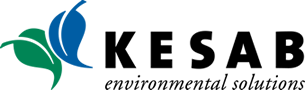As South Australia’s leading non-government environmental sustainability educator, the commitment and service of KESAB environmental solutions reaches to all corners of the State.
Some of the outcomes KESAB has achieved in the past year are highlighted in this Annual Report, demonstrating that environmental sustainability education and engagement are increasingly becoming embedded in our everyday lifestyle, recreational and work place action and behaviour.
Such education is fundamental as the world around us transforms and embraces the Circular Economy.
Communities are now facing many issues and challenges as the cost impacts of renewable energy, drought, carbon neutral targets and increased consumer demands and waste management are felt at all levels of government, business and community.
In partnerships with other key drivers and stakeholders, KESAB environmental solutions has continued to develop and deliver relevant programs and materials responding to changes around us and engaging community with objectives to improve our already strong performance in litter reduction and resource recovery in South Australia.
During the year KESAB’s initiatives focused on capacity building, professional development and training underpinned by research and waste auditing which in turn provide a platform to identify new opportunities to target problematic waste streams.
The “War on Waste” television series highlighted the many challenges that will require new technology and innovation as part of the solution, but also showed that people, can and must, be influenced and engaged to reach our ultimate goal of no waste.
The combination of our service agreements with Green Industries SA and Adelaide Mount Lofty Ranges NRM and corporate partnerships such as those with Sims Metal Management and SA Water underpin new education materials and resources that allow KESAB to extend the reach and scope of its services.
During the year KESAB’s reach extended globally with KESAB programs and training delivered internationally in Mongolia, Kiribati as well as locally, show casing the Wingfield Education Centre to the visiting Global Leadership Program on the Circular Economy hosted by Green Industries SA.
KESAB’s programs included “Source to Tap”, “Wipe Out Waste”, “Litter Less”, “Road Watch”, “NRM Education” and innovative learning programmes through the development of micro sites and social media communication. These all demonstrate the changing dynamics of working with government, business, schools and community.
Engagement outcomes across the board show that there is a clear need for more consistent messaging and systems if we are to maximise resource recovery and value our waste thereby reducing landfill and pollution. Plastic waste streams and pollution in our waterways and oceans are examples where KESAB has developed roles in partnership with other stakeholders to change bad habits and poor practices. KESAB was disappointed during the year with the performance of the “Dob in a Litterer” enforcement program legislated by State Government. The program has the potential to significantly impact on litter reduction especially with roadside, cigarette butts and convenience food packaging. KESAB will continue discussions with the EPA to ensure South Australia properly strengthens litter enforcement.
KESAB is by default the “go to” body in South Australia in terms of litter education and awareness, media and information service provider and as a litter reduction advocate. However, when compared to other States we are falling behind with a limited ability to deliver litter abatement strategies and campaigns. This is due to minimal funding which KESAB believes could be allocated through the Waste Levy which has sufficient funds to ensure South Australia continues its leadership status.
As Chair of KESAB I express my sincere thanks to our partners and collaborative stakeholders from many backgrounds, all with a genuine interest in seeing KESAB continue its leadership and environmental sustainability education and engagement outcomes. I have said it before, “KESAB punches well above its weight” in these matters.
The KESAB Board remains very focused ensuring its governance, policy and financial performance align with modern and increasingly demanding business management practices and I thank all the Members for their time, skills and support as we continue to build the capacity of KESAB.
I would also sincerely thank the KESAB Staff and in particular our Executive Director John Phillips at a time of change and challenge. Their ability to be flexible, proactive, creative in delivering dynamic programs and reaching such a wide community is detailed in “Fast Facts” elsewhere in the Annual Report. I commend it to you.

